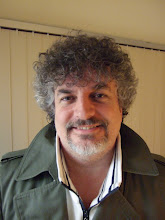In order to have an organized society, it makes sense to have "experts" in an area. Health, let's say.
So, when issues about health come up, you go to the health experts. They give their opinions, they lead research on health issues, and they say what's good for your health and what's bad. And you believe them.
But what happens when this group of experts is contaminated? What happens when they begin bending their opinions of what's good or bad based on who pays the most? This is a well-known effect in all areas of expertise called "regulatory capture." It's when people who make decisions in the Food and Drug Administration (FDA), for instance, take high-paying jobs with the very companies they decided issues for/against.
This spells trouble.
And, unfortunately, the FDA is contaminated by dirty money. The FDA made decisions to bring products like Vioxx onto the market, despite volumes of evidence showing that Vioxx caused heart attacks. Once Merck took Vioxx off the market, the FDA decided it would be okay to bring it back, all based purely on a "pay for play" mentality.
There is no question that the FDA is corrupted.
But the question we have before us is this: What do we do? If we can no longer trust "the experts" who do we trust? Do we move to a system of "ask your pal" where everyone and no one is an expert? Or do we set up a new panel of experts, as easily corruptible as the first?
There is no easy answer. Your comments are welcome.
Monday, February 27, 2006
Subscribe to:
Post Comments (Atom)

2 comments:
We don't have to set up anything. The free market always takes care of itself. For appliances we have non-governmental ratings such as Underwriter's Laboratories. Internet IP addresses are a pretty complicated thing and there's no government agency controlling that. Consumer Reports magazines, American Medical Association, etc. All we need is media to promote or dissuade a product, method or idea. When there are reports of people dying from usiing a drug, people are not going to use it.
Jon,
I don't agree. You mention the AMA. This is an excellent example. The AMA has allowed itself to be "bought out" by commercial interests. For many years, the biggest advertiser in the Journal of the American Medical Association (JAMA) was Philip Morris. The cigarette company was trying to get the AMA to delay publicizing its findings that cigarettes were bad for the health, caused cancer, etc.
It worked! JAMA proseletized cigarettes as healthful for many years after it was widely known in the medical community that they were harmful.
Further, the AMA is a central culprit in holding back progress towards less harmful health practices, choosing instead to force the ideas of pharmaceutical drugs and surgical techniques, even when many of them are proven to be useless or harmful (witness Vioxx, Celebrex, etc.).
I see the need for an outside group, maybe government, but maybe not, who is a check/balance against an organization like the AMA that has been bought out by commercial interests.
Ideas?
Post a Comment